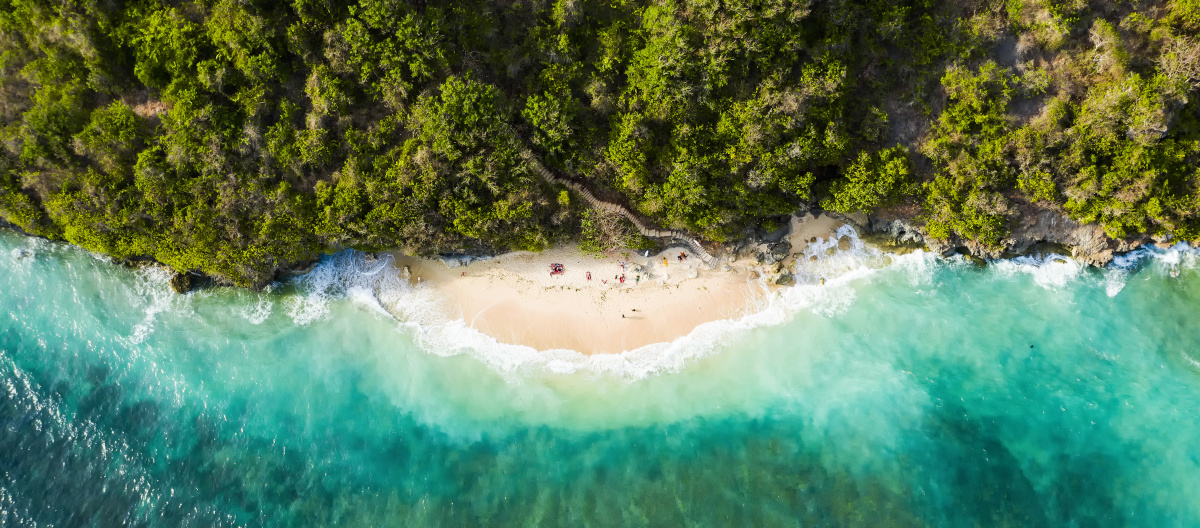
Traveling to Bali: What to Know Before You Go
Essential Information for Travelers to Bali
However, all the adventures that Bali has to offer do come with some risks. Whether it's motorbike accidents, surf breaks on remote beaches, or the risk of natural disasters like volcanoes, there are plenty of things that might disrupt your trip. Which is exactly why Bali travel insurance is so essential to protect your trip and make sure you're covered if you need emergency medical care or if you experience a disruption. Read on to find out everything you need to know to safely prepare for your trip to Bali.

Health & Safety in Bali
Medical Care and Hospitals
Medical facilities in Bali fall into two tiers: public and private. Public facilities tend to be under-resourced and less advanced, so foreign travelers typically visit private facilities like BIMC Hospital, Siloam, and International SOS when they need care. All of these facilities will require payment for treatment up front. The cost of emergency medical expenses, hospital stays, prescription medication, and more can add up quickly, which is why it’s essential to purchase travel medical insurance before you go.
If you have a medical emergency while you are exploring Bali or doing adventure activities in a remote location, you may require emergency evacuation. This will help you access the care you need in a more advanced private facility. However, these evacuations are not free and can be extremely expensive. This is why emergency evacuation coverage is also essential for your Bali trip.
Health Risks and Vaccinations
While no vaccinations are required to enter Indonesia, the CDC recommends that, in addition to being up to date on all routine vaccinations, U.S. travelers are also vaccinated for Hepatitis A, Hepatitis B, typhoid, tetanus, polio, and measles, which is on the rise worldwide. While malaria transmission is not prevalent in Bali, the CDC also recommends that travelers take steps to prevent mosquito and insect bites during their stay, including protective clothing, nets, and insect repellent.
Digestive issues are also common in Bali, especially if you eat street food. The common name for this is “Bali belly” and it can result in vomiting, diarrhea, and nausea. To avoid this, drink bottled water and try to only eat well-cooked food from reputable vendors. It’s also wise to carry a basic medical kit with common over-the-counter medication, as well as spare prescription medication or copies of your prescriptions. This is especially true if you will be visiting or hiking in remote areas.
Insurance Benefits & Coverage for a Trip to Bali
What Does Bali Travel Insurance Cover?
When considering travel insurance for Bali, you will want to make sure your travel insurance company policy covers all the areas below so that you’ll be prepared, no matter what happens during your trip.
Trip cancellation and trip interruption insurance:
Travel medical insurance:
Emergency medical evacuation insurance:
Lost luggage and personal belongings insurance:
Trip delay insurance:
Optional add-ons:
Choosing the Right Plan
Ripcord has a variety of plans suited for different trips to Bali. For travelers seeking adventurous activities like surfing Bali’s best breaks and touring scenic roads on the back of a motorbike, Ripcord is an extensive plan with high coverage limits and enhanced coverage, such as emergency evacuation and repatriation, perfect for trips to remote or rural destinations. Cavalry is suited for urban travelers who are seeking luxury and cultural experiences while staying at Bali’s many five-star resorts. Meanwhile, Harbor offers robust coverage to the budget-minded leisure traveler who may be backpacking through Southeast Asia. You can compare all of Redpoint’s comprehensive plans and figure out which one might be right for your trip here.
Entry Requirements & Practical Information
Entry and Visa Requirements
All visitors to Bali must have two empty pages in their passports and six months’ validity beyond the arrival date. While tourism-related visits do not require a visa, you do need a Visa on Arrival (VOA) for a 30-day visit, which you can extend one time. (The cost is roughly $35.) Visitors arriving at Soekarno-Hatta International Airport in Jakarta or Bali’s Ngurah Rai (Denpasar) International Airport can apply for the e-VOA in advance of their arrival. You will also need proof of onward travel, such as a flight booking.
The U.S. State Department notes that, due to an influx of travelers in Bali, officials have launched an enforcement campaign intended to ensure that foreigners are following local laws. This has resulted in “increased enforcement of traffic and vehicle violations, illegal work or other visa violations, illegal drug possession and other crimes.” So it is vital to be aware of local laws during your time in Bali if you want to avoid fines, deportation, or imprisonment.
What To Do in an Emergency
If you have an emergency in Bali and require assistance, emergency services can be contacted by dialing 112. In addition, Redpoint offers 24/7 support on its helpline to travelers who have an emergency or need assistance. If you are having trouble locating help locally, Redpoint’s associates can help connect you to the help you need on the ground.
There is a U.S. Consular agency in Bali, which can help visitors with passport issues. However, the main embassy for Indonesia is located in Jakarta. If you need assistance while you’re in Bali, you should first contact the consulate.
Jl. Hayam Wuruk 310
Denpasar 80235
Bali, Indonesia
Phone: (62) 361-233-605, (62) 361-246-859
After Hours Emergencies: +62-(0)21-5083-1000, select 0 to speak with the operator
Popular Activities and Adventure Travel in Bali
Bali offers thrilling adventure sports and travel experiences, from surfing world-class waves in Uluwatu and Kuta to whitewater rafting on the Ayung River. Hike volcanic Mount Batur at sunrise or go for epic dives off Nusa Penida and Tulamben. And don’t forget to hop on a motorbike as you tour Bali’s most scenic routes. Whether on land or sea, Bali is a paradise for adrenaline-seekers and nature lovers alike — just make sure you have adequate coverage from an adventure travel insurance policy before you go.
FAQs for Bali Travel Insurance

Is travel insurance required for Bali?
What does Bali travel insurance cover?
How much does travel insurance cost?
Will travel insurance cover hiking accidents or evacuations?
Can I buy travel insurance while already in Bali?
Protect Your Trip With Redpoint Travel Insurance
Protecting yourself on your trip to Bali requires comprehensive travel insurance, and Redpoint Travel Protection has a global reputation for providing high-quality policies to fit every traveler. It also offers 24/7 support — even in Bali’s most remote corners — to give travelers peace of mind and help them enjoy their trips. Explore Redpoint’s policies here, which can support backcountry adventurers and city hoppers alike

